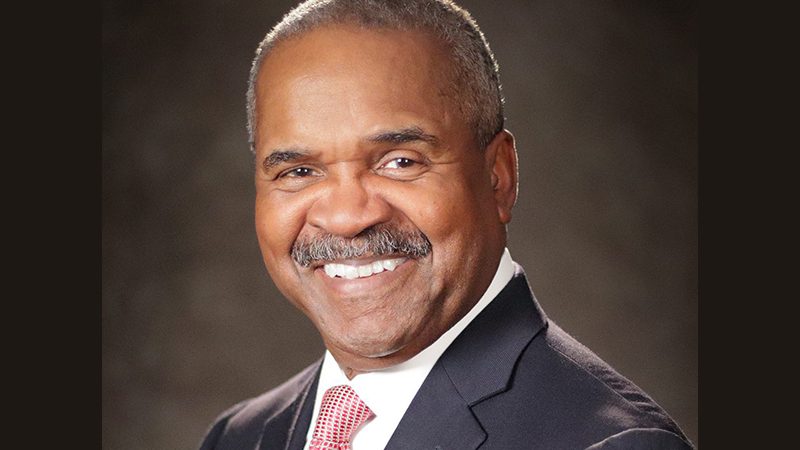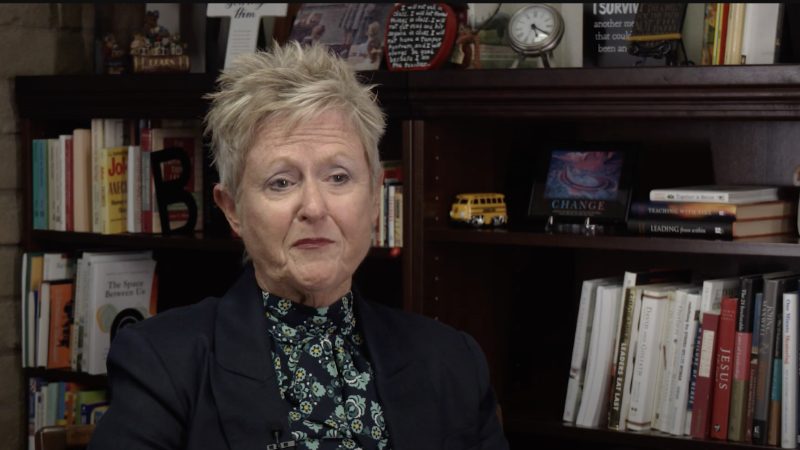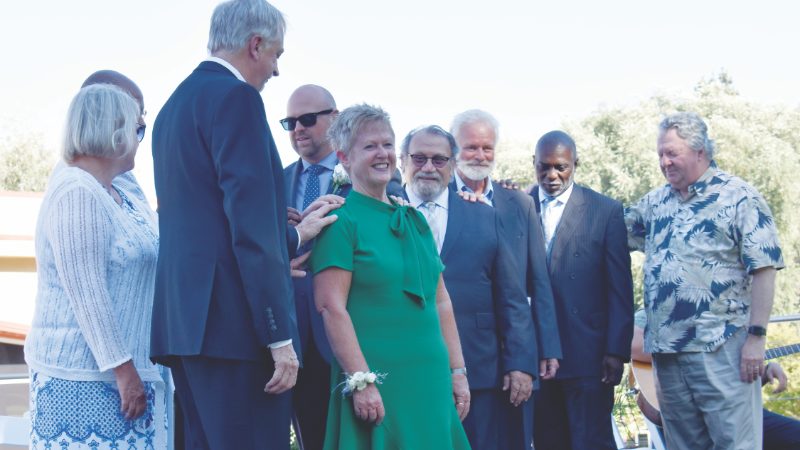A college senior hurries quickly back to his room in the old Burman Hall at Andrews University. Taking the creaking steps two at a time, he quickly places his key in the lock of room 314 and then stands by the green rotary phone hanging on the wall. He catches his breath as the phone rings—right on time. The voice on the other end of the line is the sweetest sound he can imagine on that Wednesday morning. From across the country in Angwin, California, comes the greeting, “Hi, Brad.” It’s his girlfriend, Jennifer, and it’s time for the phone call that they build their weekly schedule around. Before the days of cellphones and unlimited long distance, a call was expensive—so talking like this was both an event and investment. But to talk, laugh, and tell stories about their lives was worth every dollar. After over 40 years of marriage, Jennifer and I still love to talk together. In fact, we’ve grown so accustomed to the cadence and tone of each other’s voices that in a store or a crowd I can discern her voice even if she’s out of sight.
There is another Voice to whom we need to grow ever more attentive as we journey into 2022. The prophet Isaiah tells us about the experience that this Voice brings to our lives: “Your ears will hear sweet words behind you: ‘Go this way. There is your path; this is how you should go’ whenever you must decide whether to turn to the right or the left” (Isaiah 30:21, The Voice translation). Why do so many Christians feel that they lack this intimacy with God? How can we discover a real-life walk with God?
Our answer begins with one of the most enduring and endearing images of Jesus in Scripture—the Good Shepherd. In John 10:1-5 we read, “He who does not enter the sheepfold by the door, but climbs up some other way, the same is a thief and a robber. But he who enters by the door is the shepherd of the sheep. To him the doorkeeper opens, and the sheep hear his voice; and he calls his own sheep by name and leads them out. And when he brings out his own sheep, he goes before them; and the sheep follow him, for they know his voice. Yet they will by no means follow a stranger, but will flee from him, for they do not know the voice of strangers” (NKJV).
Sheep pens and shepherds’ work were familiar to Jesus and His listeners. Often multiple flocks were kept by several owners in a single cave, rocky wall enclosure, or family courtyard. A door was in place, guarded by a watchman to ensure only the authorized could get access to the animals. The shepherd of a particular flock could stand outside the pen and give the distinctive call for his flock to follow. Unlike Western shepherds who drive their sheep or use a sheep dog, the shepherds of Jesus’ day led their flocks, their voice calling them on. Remarkably, the sheep followed simply because they knew the voice of the shepherd.
How do you imagine the voice of Jesus sounded when He lived on Earth? Was it deep and low, like He’s often pictured by old Hollywood movies, or perhaps more friendly and casual? John says that Jesus was the Word made flesh that dwelt among us (John 1:14). What sound would have met your ears when He spoke as a teacher, a healer, a traveler on dusty roads with His disciples, the dutiful son to His mother, a brother in the family, proclaimer of God’s message in the Temple, standing before Pilate and Herod, crying out, “Father, why have you forsaken me?” hanging upon the cross? Of course, no descriptions of Jesus’ voice were ever written. Yet the life experience of countless millions throughout history and my own life is that the call of the Voice reaches us, speaks, and calls us even today to follow Him toward something far better than we’ve ever known.
Would it surprise you to know that Jesus thought about you when He was still living on Earth? In fact, He prayed to His Father for each of us! “I do not pray for these [first century disciples] alone, but also for those who will believe in Me through their word; that they all may be one” (John 17:20-21, NKJV). This means that, through His grace, the Shepherd has made provision for all who are willing to hear and follow His voice even now. “I still have many things to say to you, but you cannot bear them now. However, when He, the Spirit of truth, has come, He will guide you into all truth; for He will not speak on His own authority, but whatever He hears He will speak; and He will tell you things to come” (John 16:12-13, NKJV; emphasis added). It’s a stupendous reality that Jesus’ departure was necessary in order for the deeper realities of who He is to be awakened in the hearts of people. It’s in God’s great plan that today we may be active listeners to the Great Shepherd through the ministry of God the Holy Spirit.
Which brings us to a practical problem for Christians of every language, culture, and period of history. How can you know the voice of the Shepherd? John 10:3 makes it perfectly clear that “the sheep hear his voice; and he calls his own sheep by name and leads them out” (NKJV). So how can we be listening today? Over the course of several future articles, we will explore this important subject in a practical manner. But I do not want you to wait to experience the blessing that Jesus has waiting for you right now. We do not need extensive training or lengthy seminars to begin right now with this essential work. In fact, you may set your spiritual table today so that the Voice of our Lord may find fertile ground upon which the seeds of His truth may fall.
Love is expressed in so many ways. However, regularly connecting is an essential quality to any long-lasting relationship. Jennifer and I still love to share problems and joys, big and small. We commit to grow in our knowledge of each other, which promotes our happiness together. Just as marriages and friendships need investment, even more so does that ultimate friendship with Jesus. Don’t wait to invest time with Him. Open your Bible and read a chapter from the Gospels and the Psalms. Ask yourself what Jesus is saying about Himself and your life with Him. Talk with Him about it.
Ellen White glowingly describes your life of growing to listen to the Voice: “As we make Christ our daily companion we shall feel that the powers of an unseen world are all around us; and by looking unto Jesus we shall become assimilated to His image. By beholding we become changed. The character is softened, refined, and ennobled for the heavenly kingdom. The sure result of our intercourse and fellowship with our Lord will be to increase piety, purity, and fervor. There will be a growing intelligence in prayer. We are receiving a divine education, and this is illustrated in a life of diligence and zeal” (Prayer, p. 82).
Bradford C. Newton is the president of the Pacific Union Conference.





